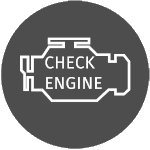4 Things to Maintaining Your Vehicle: What You Need to Know About Scheduled Maintenance
Maintaining your vehicle is important to keep it running smoothly and avoid potential larger issues or breakdowns down the road. Scheduled maintenance is a service schedule provided by a vehicle’s manufacturer that specifies how often various parts and systems should be inspected, serviced, replaced, and generally kept in good working order. Depending on some factors like the make and model of your vehicle, its intended purpose, frequency of use, and operating environment, scheduled maintenance may vary considerably. For example, a car that is driven daily in stop-and-go traffic will likely need more frequent oil changes than one that is driven only on weekends. A commercial truck that regularly hauls heavy loads will need more frequent maintenance than one that doesn’t.
Some of the most common types of scheduled maintenance include oil changes, tire rotations, brake inspections and replacements, and engine tune-ups. Depending on your vehicle and its needs, you may need to have some or all of these performed on a regular basis. Scheduled factory maintenance is the best way to keep your car running like new for as long as possible.
If you’re not sure what kind of maintenance your vehicle needs or how often it should be done, consult your owner’s manual or ask a qualified mechanic. They can help you create a customized maintenance schedule that fits both your car and your driving habits. Taking care of your car doesn’t have to be complicated – just follow these simple steps and you’ll be on your way to a long, trouble-free life for your vehicle.
1. What is Scheduled Maintenance?
Scheduled maintenance is a service schedule provided by a vehicle’s manufacturer. It specifies how often various parts and systems should be inspected, serviced, replaced, and generally kept in good working order.
2. What does it do?
The idea behind scheduled maintenance is to keep a vehicle running smoothly and avoid potential larger issues or breakdowns down the road. Scheduled maintenance may vary considerably depending on some factors. These are the make and model of the vehicle, its intended purpose, frequency of use, and operating environment.
3. Typical Wear and Tear
A car that is driven daily in stop-and-go traffic will likely need more frequent oil changes than one that is driven only on weekends. A commercial truck that regularly hauls heavy loads will need more frequent maintenance than one that doesn’t.
4. Where to Go
Here at Global Autoworks, we specialize in scheduled maintenance for all makes and models of vehicles. We have a team of qualified mechanics who can help you create a customized maintenance schedule that fits both your car and your driving habits. Contact us today to learn more!
















